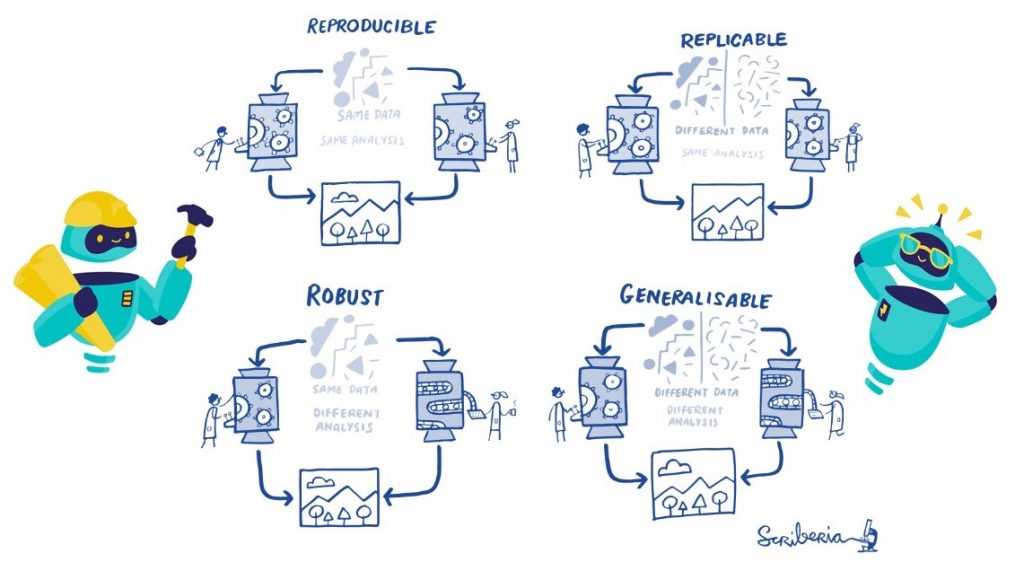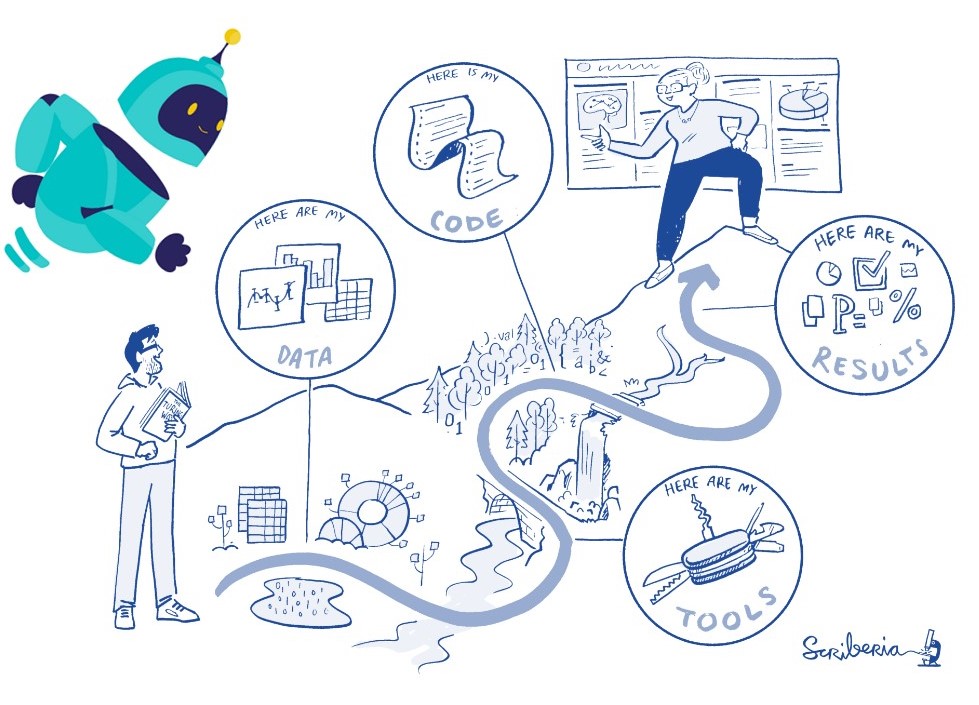Making your data available and accessible (even confidentially or upon request) via open repositories is one of the requirements increasingly demanded by funders (such as the EU and the Italian government) and scientific journals which are more and more requesting a data statement attached to the publications. Importantly, also National Research Evaluation Agencies on the basis of the commitments defined by the Coalition for Advancing Research Assessment (CoARA) (which was signed both by UNIMI and ANVUR) are expressly requesting researchers to include datasets published in repositories among research products for evaluation purposes.
Nevertheless, making your data openly accessible ensures that your research results are verifiable and validable, but opening the data without making it reusable is useless and it does not guarantee reproducible results.
Importantly, there are multiple ways of interpreting what all this means. According to an article published on Nature in January 2025, we can state that "reproducibility refers to using the same analysis on the same data to see if the original finding recurs; robustness refers to using different analyses on the same data to test whether the original finding is sensitive to different choices in analysis strategy; and, replicability refers to testing the same question with new data to see if the original finding recurs".
Althoug these definitions seems to be more applicable to data and research results in the Life Sciences and STEM disciplines, they can be easily applied also to research outputs in the Social Sciences and Humanities, since the ultimate goal of proper research data management in all disciplinary area is to ensure the reproducibility of research results.
But why?

As again reported in the article above-mentioned, "Simply put, I believe that reproducibility is what makes up the vast majority of the impact of a research discovery, as it allows others to build on the results and move the field forward. Without transparency or reproducibility, the discovery itself, no matter how potentially groundbreaking, is ultimately useless for the big picture of scientific advancement", and moreover, "Reproducibility is one of the most distinctive and fundamental attributes of true science. It acts as a filter, separating reliable findings from less robust ones by establishing the value and the intrinsic nature of the former and thus serving as a reliable guide for further research". Importantly, reproducibility or research results is strictly related to the transparency and integrity of the research method as it enhances scientific rigor and intellectual honesty of researchers and it avoids research redundancy, also fostering collaborations and the building of new research results on the existing research. And this is more and more significant when considering that research studies are mainly conducted in public infrastructures and are funded by public money, therefore they need to have a public return and refrain from wasting public money.
Indeed, for some years now we have been facing what is known as the reproducibility crisis, which means that not only the vast majority of research results are not replicable by other scholars but also by the researchers who produce it. As a matter of facts, practices for guaranteeing research reproducibility are time-consuming and are not rewarding; and the scientific publishing and evaluating system of "publish or perish" does not allow for the developement of this awareness but, instead, it fuels the crisis.
To face it, more and more institutional and editorial actions (such as those mentioned at the top of this page) are being taken; along with support practices, training services, and dedicated which are implemented in single universities (such as UNIMI's). But all in all, it is also important that you, as a researcher, make ethical, scientifically rigorous and responsible individual choices to make your research reproducible.

Both images in this page are adapted from: Illustration by Scriberia with The Turing Way community, used under a CC-BY 4.0 licence. DOI: 10.5281/zenodo.3332807
FURTHER REFERENCES:
- No raw data, no science
- A focus on replicability crisis
- A report on open data
- Overview on reproducibility
- A report on impact factor mania and publish-or-perish system: Learning from past errors (and misconduct)
- The blog section of UNIMI's Open Science website with news and discussions on these topics
And how to do it?
- manage your data according to the FAIR principles
- write a Data Management Plan at the beginning of your research
- deposit your data on open repositories
- use open and non-proprietary file formats
- attach a readme file to your research data to make it understandable
- compile exhaustively the metadata which should always accompany your data
- remember that open data is different from FAIR data (which is the basis for guaranteeing reproducible research results), thus always include all the necessary documentation to understand the processes undertaken on data, all the metholodogies, the decision you have made, and the context for data collection, elaboration and dissemination of results findings
- Read papers before you cite them
- Review your raw data weekly
- Keep your team members and/or your supervisor accountable
- Publish also your negative results!
